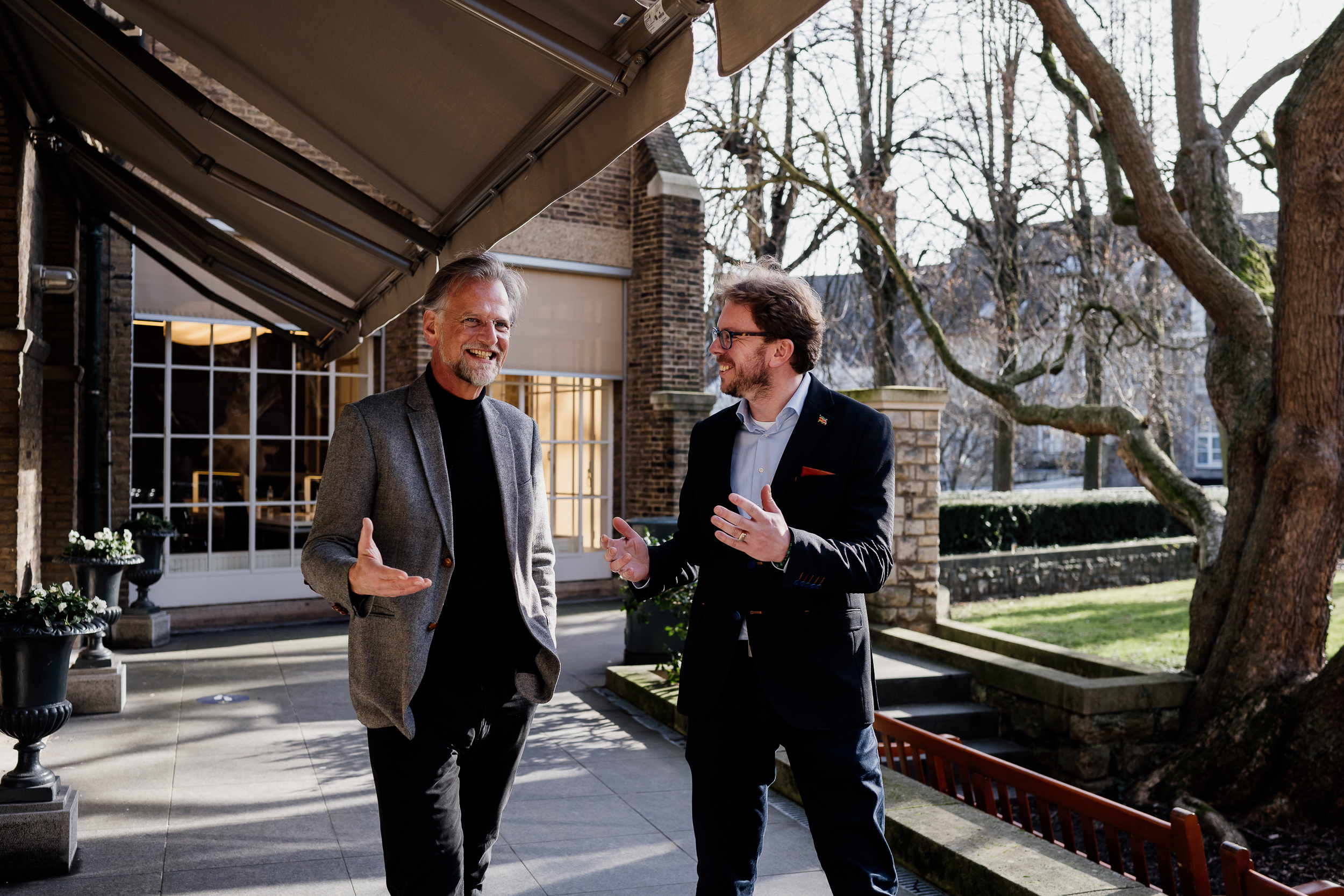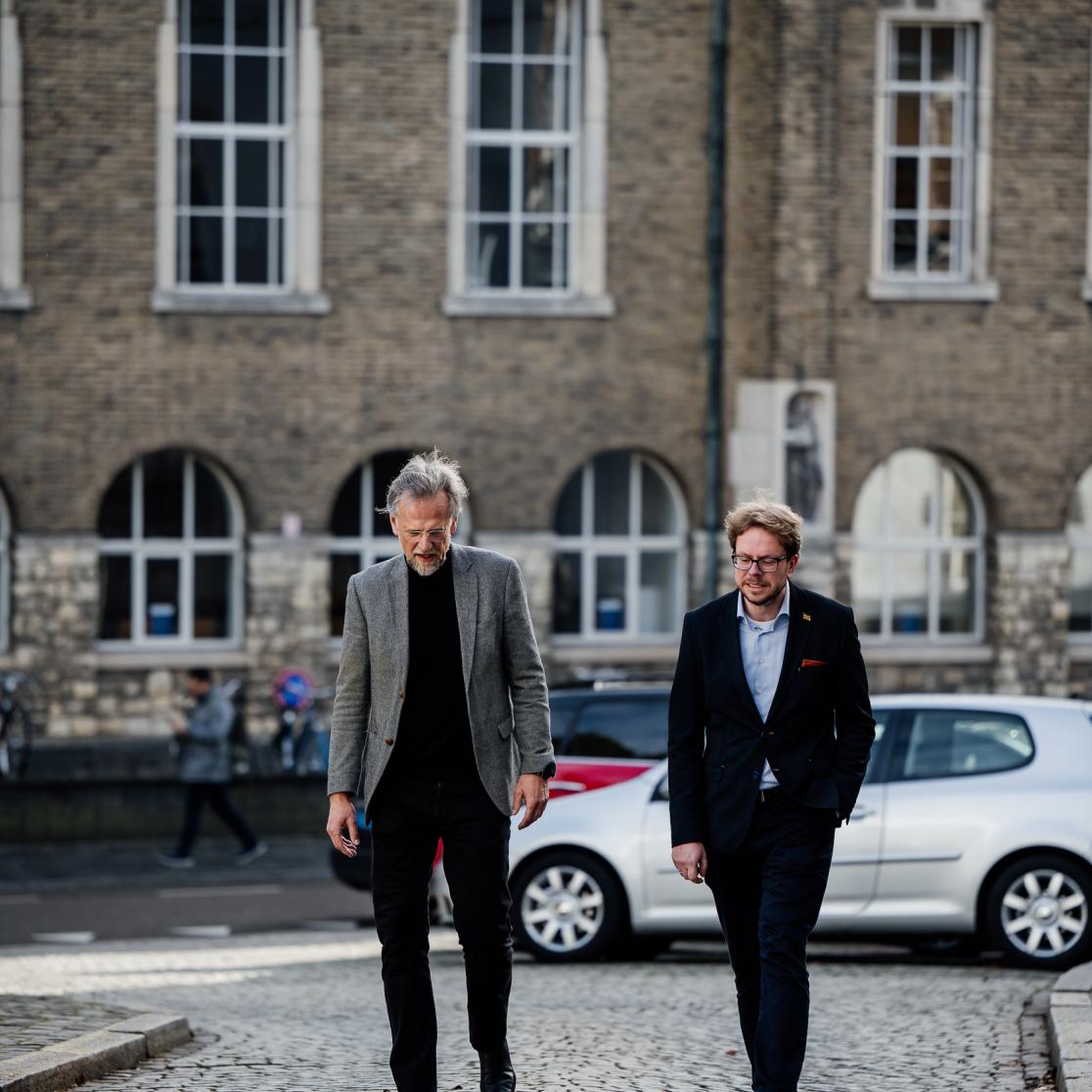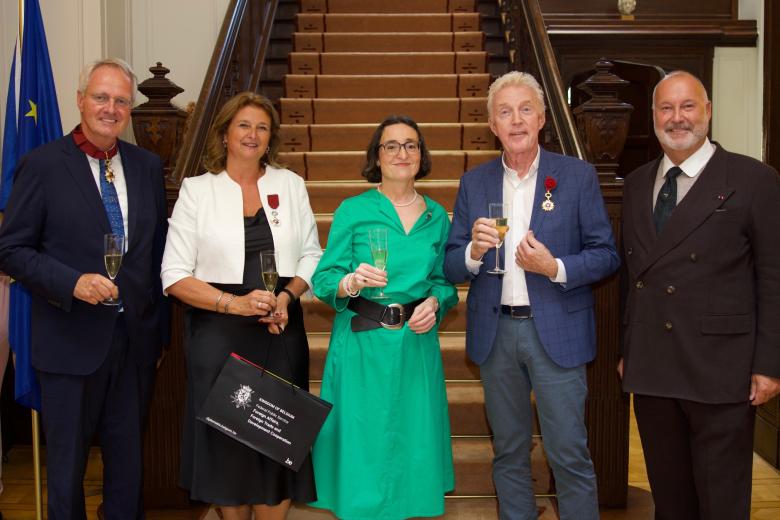Restorative Justice and Preventive Law: where do these law movements stand?
Jacques Claessen and Eric van de Luijtgaarden are endowed professors at Maastricht University. Jacques focuses on Restorative Justice, and Eric researches Preventive Law. How do these topics relate to each other?
Surprising similarities
Jacques and Eric notice strong similarities between their stories. It leads to a fundamental question: what are we doing in the current legal system? “Often, we do not resolve conflicts at all. Sometimes, we even make them worse. Prevention hardly plays a role.” The endowed professors agree that we need to ‘retrain’ lawyers. “They need to look at the law differently and learn that it is not the law, but the human being that is central.”
“We see judges increasingly referring cases to mediators, which is good news”, says Jacques. “But we should apply this more horizontal, democratic approach to conflicts more extensively. Think district courts, neighbourhood justices and youth courts, for example. We need to get closer to the people in a conflict. Judges are still mainly ‘rule-followers’ but should become more like guides in resolving conflicts.”
The basic principles of both ideologies complete each other nicely: looking at the complete spectrum of issues rather than zooming in on legal facts. “Of course, we must keep the legal facts in mind, but most cases do not benefit from just looking at facts. For example, an average SME case has several aspects. Financial and business problems, as well as social and contextual issues. If you leave all those out, you lose touch with everyday reality. That doesn't help people’s faith in the law”, Eric says.
So, are there no differences between both approaches?
Sure there are, say both. Thinking aloud, Jacques says: “It might sound like conflicts are out of the question for Preventive Law. That is not the case in Restorative Justice. Conflicts are allowed; they are seen as opportunities for growth, as long as we deal with them meaningfully and constructively. Moreover, a world without conflicts is an illusion.”
Eric agrees. “Indeed, Preventive Law focuses on preventing conflicts. But we are not naive. Of course, there will always be conflicts. Therefore, our focus is not only on prevention but also on the de-escalation of existing conflicts. Talking first, before opening up the complete legal toolkit.”
“Restorative Justice is primarily reactive”, responds Jacques: “For example, recidivism reduction is not officially a goal, but restorative justice has been shown to have a preventive effect, by also permanently addressing the causes that led to harm. So preventing new conflicts is now also a part of our focus.”
Harsher punishments are not the solution
People often think of restorative justice as a soft approach because it does not focus on (prison) sentencing. Is that the right perception? “I can best answer that question with a few counter-questions”, says Jacques. “What do we really want: effective sanctioning to prevent injustice, or severe punishment out of negative emotions and short-term thinking? We have to let what works guide us. We consistently see that sanctions focusing on resocialisation, rehabilitation and recovery, have much better results than retribution and deterrence. Restorative Justice has offenders look their victims in the eye and experience what their actions have done to the victims. Do you think that message is soft?”
“In other areas, such as psychology, we see dealing with and talking to people as hard skills”, Eric adds. “Why not in law? Where does this focus on big cases involving lots of money come from anyway? Surely, the law is there for the people, not the economy. Look at the current crises, for example: the benefits affair, gas extraction damage, refugees, climate, energy. It is essential to talk to those affected in a solution-oriented way.”

Revenge
“Especially with more serious crimes, the primal feeling of revenge often comes into play. Restorative justice thinkers do not shy away from the normative-critical debate: vindictiveness certainly exists, but is it really just and moral to hurt another person after they have committed a crime? Not in my opinion. You can call it punishment or retribution, but it is still revenge. We must break the argument that punishment must follow crime. So, restorative justice is also about people's morals.”
“At Preventive Law, we call this the moral legal compass”, Eric responds. “What are your values and motivations as a lawyer? Where is the morality in applying legal principles and rules? Current times demand change in legal professionalism, which is why we need to invest in education.”
Again, Eric and Jacques agree. “Our job is done when the human is brought back into the law. But we are nowhere near that point. Now is the time for a shift in awareness. We must ensure that the new generation of lawyers focuses on that human aspect. In Maastricht, we have now started doing this from two special chairs. Human-centred law studies must become the norm. Law is there for the people, not the other way around!”
Return to lawreview2022

Also read
-
Green light for UM participation in unique YUFE bachelor programme
The UM can start as a degree awarding partner in the new unique bachelor programme Urban Sustainability Studies offered by YUFE (Young Universities for the Future of Europe), an alliance of ten European universities. This week, the UM received a positive outcome of the macro due diligence assessment...

-
Professor Anouk Bollen-Vandenboorn appointed Knight in the Order of the Crown
Prof. Dr Anouk Bollen-Vandenboorn, Director of the Institute for Transnational and Euregional cross border cooperation and Mobility (ITEM) at the Faculty of Law, Maastricht University, was appointed Knight in the Order of the Crown on 3 July, during a formal ceremony at the Belgian Embassy in The...

-
Study Smart gets Dutch Education Premium
Maastricht University's (UM) interfaculty educational innovation project Study Smart is one of the three winners of the Dutch Education Premium 2025. This was announced on Tuesday during the Comenius festival in The Hague.
